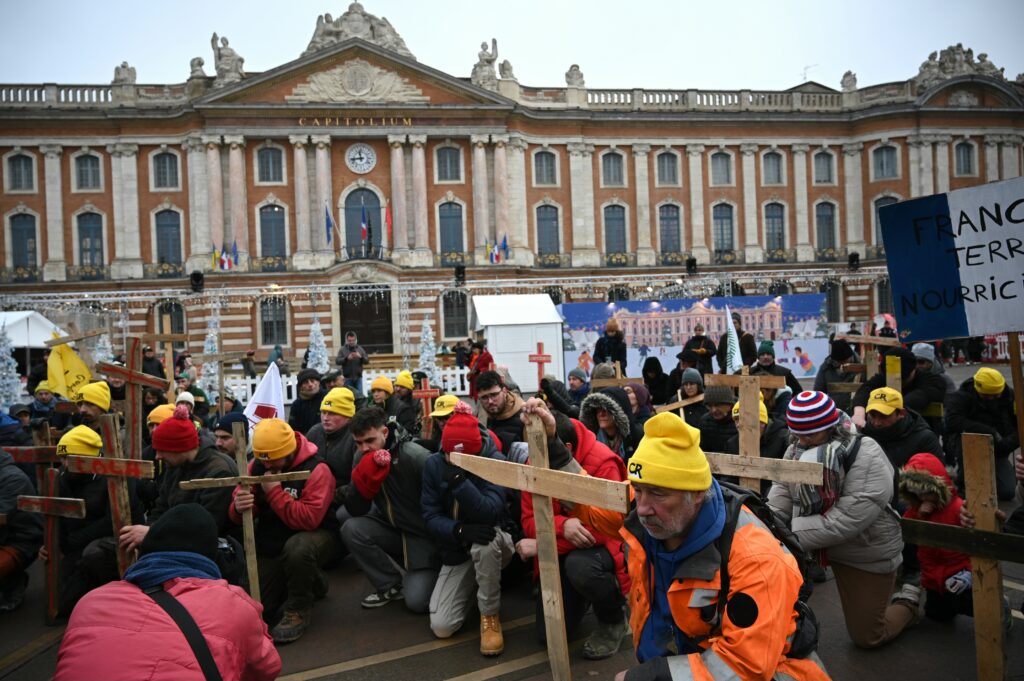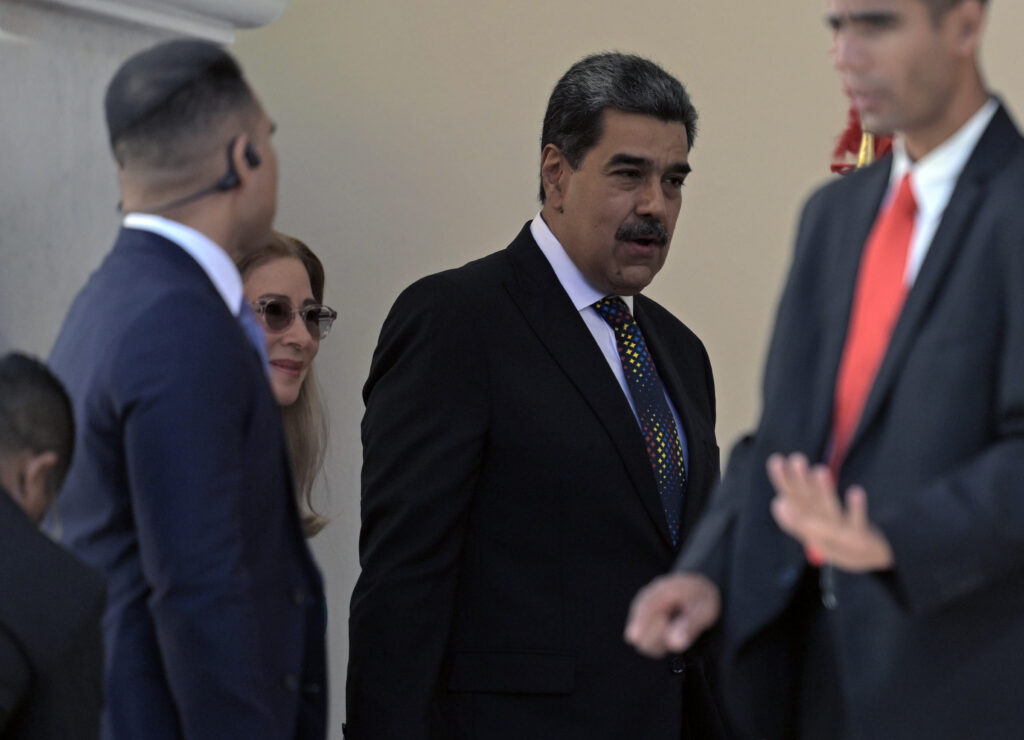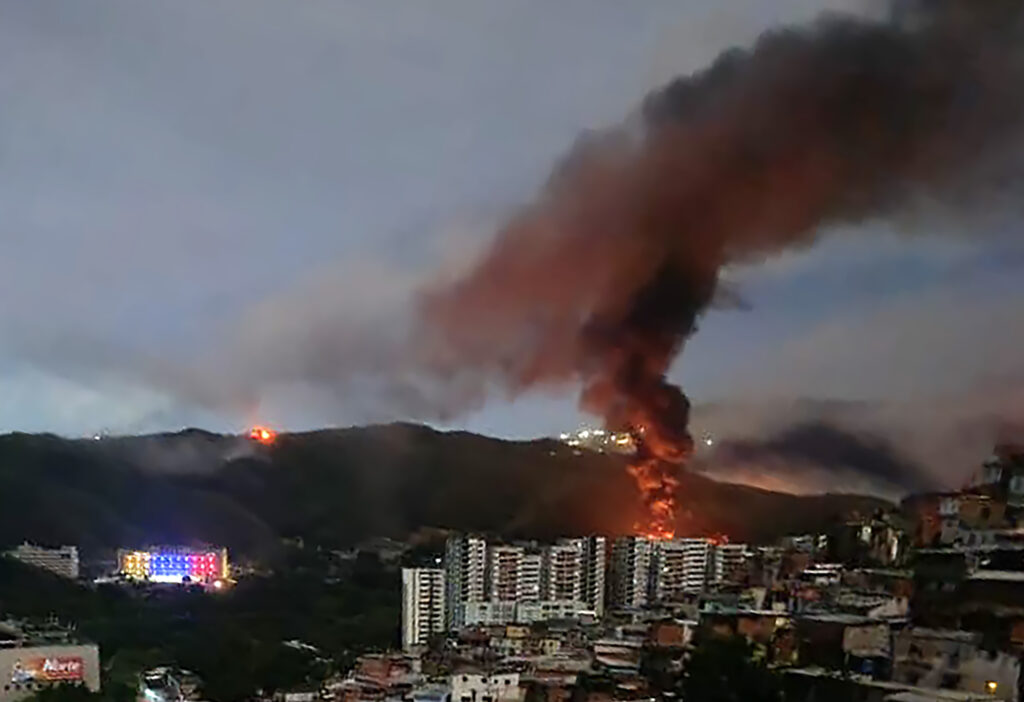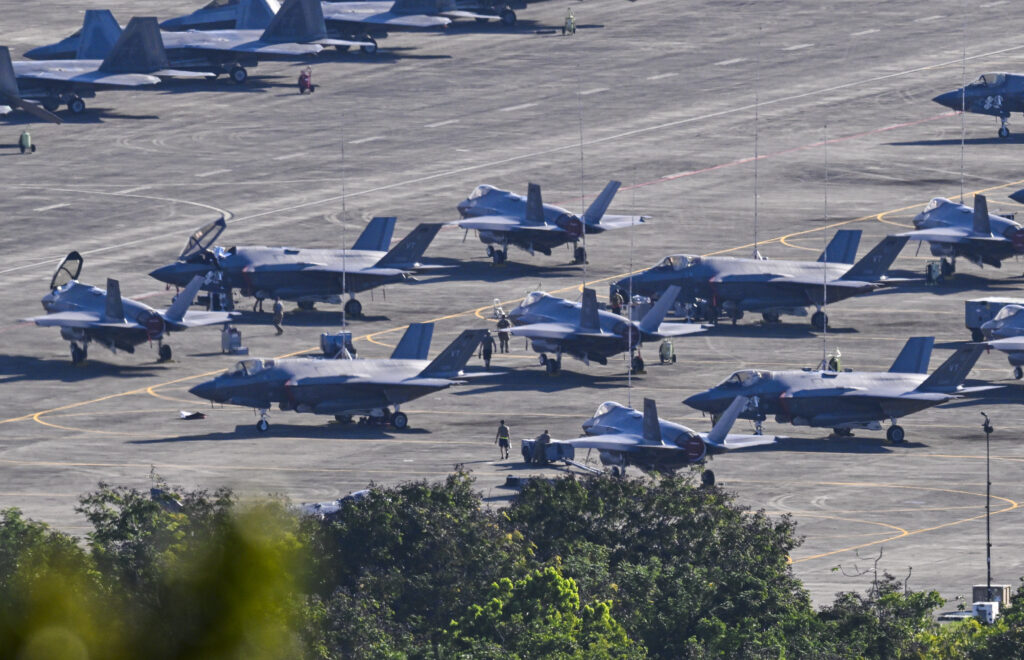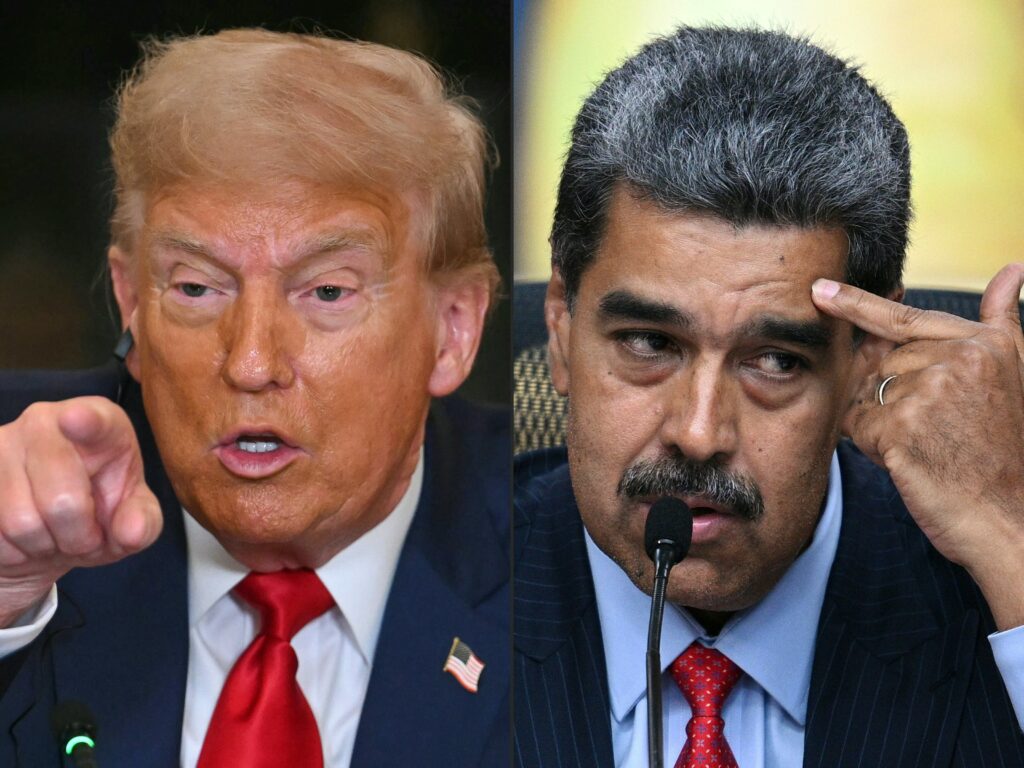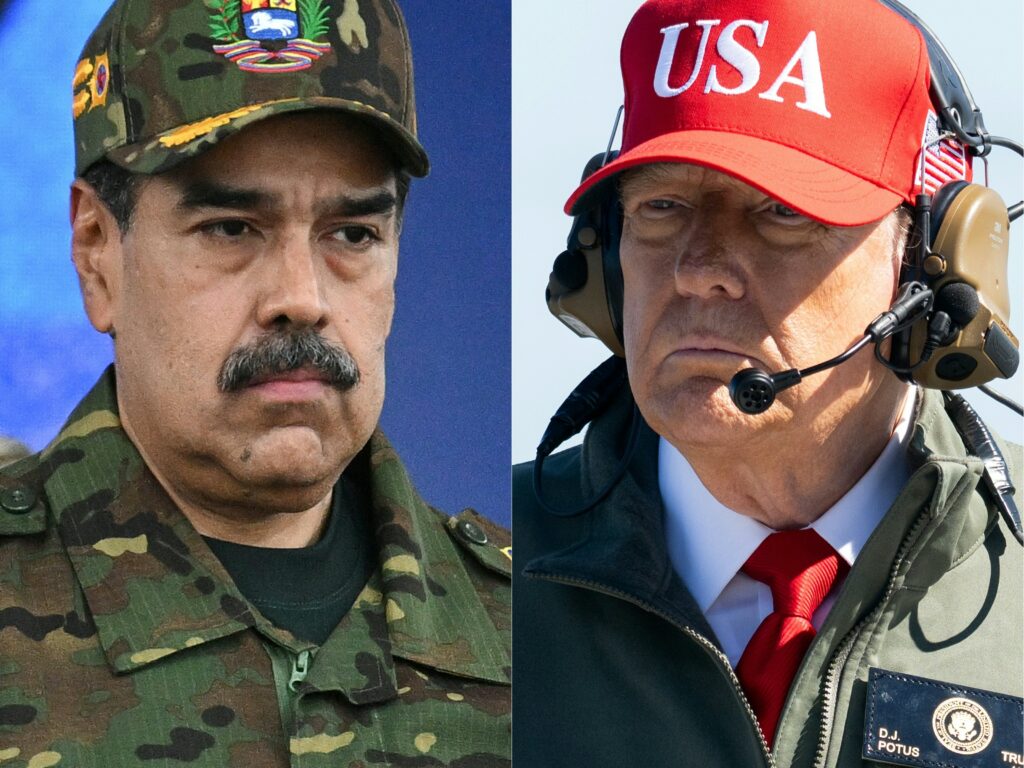Le président américain Donald Trump a annoncé samedi que les forces américaines avaient capturé et exfiltré le président vénézuélien, Nicolas Maduro, qui sera jugé aux Etats-Unis, après avoir lancé une “attaque de grande envergure” contre le pays sud-américain.La ministre de la Justice Pamela Bondi a expliqué sur X que M. Maduro et son épouse, dont on ignore où ils se trouvent, “feraient bientôt face à toute la rigueur de la justice américaine, sur le sol américain, devant des tribunaux américains”, après les événements dramatiques de la nuit au Venezuela. Mme Bondi a rappelé que le couple Maduro était inculpé devant un tribunal fédéral de New York pour des chefs de “narcoterrorisme” et de “complot pour importation de cocaïne” aux Etats-Unis.”Les Etats-Unis d’Amérique ont mené avec succès une attaque de grande envergure contre le Venezuela et son dirigeant, le président Nicolas Maduro, qui, avec son épouse, a été capturé et exfiltré du pays”, a écrit auparavant M. Trump sur son réseau Truth Social.Le président républicain doit donner une conférence de presse à 11H00 (16H00 GMT) dans sa résidence de Mar-a-Lago, en Floride, au sujet de ces frappes dont le bilan humain est dans l’immédiat inconnu. Dans une brève déclaration au New York Times, Donald Trump s’est félicité d’une opération “remarquable” ayant impliqué “une bonne préparation et beaucoup de bons, bons soldats”, notamment contre le complexe militaire de Fuerte Tiuna, le plus grand du Venezuela, au sud de Caracas, et la base aérienne de Carlota, au nord.La vice-présidente vénézuélienne, Delcy Rodriguez, a déclaré ignorer où se trouve le président socialiste de 63 ans, au pouvoir depuis 2013, et exigé des Etats-Unis “une preuve de vie” du couple Maduro après cette opération spectaculaire. En pleine nuit, les frappes nocturnes ont embrasé le ciel de Caracas et de ses environs, tirant les habitants brutalement de leur sommeil. Dans beaucoup de quartiers, ils se sont rués à leur fenêtres et terrasses pour tenter de comprendre ce qui se passait.De premières puissantes explosions ont été entendues peu avant 02H00 du matin (06H00 GMT) à Caracas et dans les environs de la capitale, jusqu’à 03H15 (07H15 GMT), a constaté l’AFP. – “J’ai pleuré” -Les explosions “m’ont soulevée hors du lit par la force, et sur le moment j’ai pensé : ‘Mon Dieu, le jour est arrivé’, et j’ai pleuré”, a raconté à l’AFP María Eugenia Escobar, une habitante de La Guaira, âgée de 58 ans.Des explosions ont été entendues à l’aéroport et au port de Caracas, a affirmé une habitante de la Guaira à l’AFP. D’autres habitants ont dit à l’AFP avoir entendu des explosions à Higuerote, à une centaine de km à l’est de Caracas.Francis Peña, 29 ans, a lui “commencé à préparer (…) un sac avec les affaires les plus importantes: passeport, cartes, liquide, bougie, une tenue de rechange, des conserves. On est déjà habillées, au cas où”, dit-il.A fuerte Tiuna, épicentre des bombardements de la nuit, des gens fuyaient l’enclave avec des valises et des sacs remplis de vêtements. Certains ont expliqué à l’AFP qu’ils partaient pour protéger leur famille. “Ils ont failli nous tuer”, a expliqué l’un des résidents.Caracas a dénoncé une “très grave agression militaire” après les frappes que le président colombien, Gustavo Petro, a attribuées à une attaque “de missiles”.”Le Venezuela rejette et dénonce (…) la très grave agression militaire perpétrée par (…) les Etats-Unis contre le territoire et la population vénézuéliens”, a indiqué un communiqué du gouvernement. “L’objectif de cette attaque n’est autre que de s’emparer des ressources stratégiques du Venezuela, en particulier de son pétrole et de ses minerais, en tentant de briser par la force l’indépendance politique de la Nation”, poursuit le communiqué.Le gouvernement “appelle toutes les forces sociales et politiques du pays à activer les plans de mobilisation”, selon le texte qui annonce que Nicolas Maduro “a signé et ordonné (…) l’état d’urgence”.- Déploiement massif -Le ministre vénézuélien de la Défense a accusé, sur les réseaux sociaux, l’armée américaine d’avoir “frappé des zones résidentielles”. “Les forces envahisseuses (…) ont profané notre sol (…) allant jusqu’à frapper, au moyen de missiles et de roquettes tirés depuis leurs hélicoptères de combat, des zones résidentielles”, a déclaré le général Vladimir Padrino Lopez, indiquant être de “train de recueillir les informations relatives aux blessés et aux morts”. Il a aussi promis “le déploiement massif de tous les moyens terrestres, aériens, navals, fluviaux et balistiques, système d’armes pour la défense intégrale”.L’offensive américaine survient alors que Donald Trump avait évoqué la possibilité de frappes terrestres contre le Venezuela et affirmé que les jours du président Maduro étaient “comptés”, après avoir fait déployer une flottille de guerre dans les Caraïbes contre le narcotrafic et mené des frappes meurtrières contre des bateaux.”Alerte générale, ils ont attaqué le Venezuela”, a écrit sur son compte X le président colombien, proche de M. Maduro. M. Petro a demandé une réunion “immédiate” de l’Organisation des Etats américains (OEA) et de l’ONU pour se prononcer sur la “légalité internationale” de cette “agression”.Il a annoncé avoir ordonné le déploiement de militaires à la frontière avec le Venezuela. M. Petro a qualifié les bombardements américains d'”agression contre la souveraineté” de l’Amérique latine et affirmé qu’elles entraîneraient une crise humanitaire.- “Les principes du droit international” -L’Iran, qui entretient des liens étroits avec le Venezuela, a condamné “fermement l’attaque militaire américaine”, que la Russie a jugée “profondément inquiétante et condamnable”. Moscou a demandé des éclaircissements “immédiats” sur la situation de M. Maduro. L’Espagne a “appelé à la désescalade et à la modération” et s’est dite “disposée à offrir ses bons offices”. L’Allemagne, l’Italie et la Pologne ont indiqué suivre la situation de près, avec inquiétude. L’Union européenne, par la voix de sa cheffe de la diplomatie, Kaja Kallas, a “appelé à la retenue” et rappelé qu'”en toutes circonstances, les principes du droit international et de la Charte des Nations unies doivent être respectés”. A Londres, le Premier ministre Keir Starmer a rappelé le respect des mêmes principes.Inquiet de la “stabilité régionale”, le Mexique a condamné “avec la plus grande fermeté”, comme le président Lula au Brésil, les frappes américaines, à l’inverse saluées par un tonitruant “La liberté avance, vive la liberté, bordel !” du président argentin pro-trump, Javier Milei.
